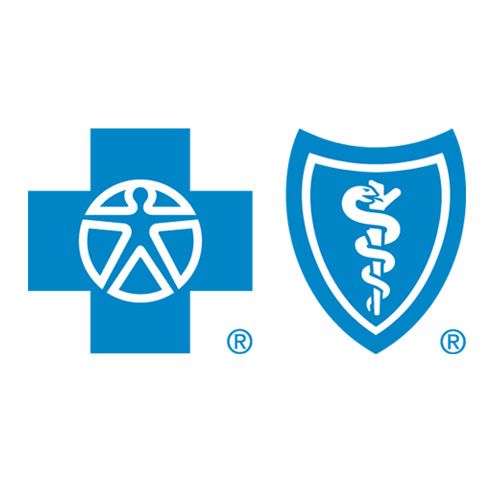How can we work to improve the health care experience for Black mothers?
October 19, 2020Black women in the United States experience pregnancy-related deaths at a rate four to five times as high as white women, according to the Centers for Disease Control and Prevention. From a history of trauma with health care systems to racial discrimination and barriers to obtaining quality care, the pregnancy and childbirth experience for Black mothers is often far different from that of white mothers.
 The Citizens League recently held a virtual conversation as part of their Mind Opener series, which is sponsored by Blue Cross and Blue Shield of Minnesota. The event featured three experts who shared how racism in the health care system impacts maternal health outcomes for Black women and how everyone can work to create a more just and inclusive health system.
The Citizens League recently held a virtual conversation as part of their Mind Opener series, which is sponsored by Blue Cross and Blue Shield of Minnesota. The event featured three experts who shared how racism in the health care system impacts maternal health outcomes for Black women and how everyone can work to create a more just and inclusive health system.
“Several different types of racial inequities persist in our society, and some of those are health inequities,” says Asha Hassan, associate research manager at Planned Parenthood North Central States and Ph.D. student at the University of Minnesota. “From health insurance coverage to life expectancy and, more recently, what we’re seeing in COVID mortality and infection rates. For a long time, we have known that based off what your race is, you have a different experience with your health.”
For decades, people have speculated that health care inequities exist due to different biology or socio-economic status, but she said the research* does not bear that out.
“What we have learned through science is there is no genetic marker of race— race is a social construct,” Asha says. For example, while poverty is cited as a cause of health disparities, she explains that does this does not help explain why statistics show that babies born to well educated, middle-class Black mothers are more likely to die before their first birthday than babies born to poor white mothers with less than a high school education.
And while the death of a woman during pregnancy, in delivery or soon after (known as “maternal mortality”), is decreasing in nearly every other part of the world, research has shown the U.S. has seen a steady increase to 17 deaths per 100,000 live births— and the rate for Black mothers is 37 deaths per 100,000 live births, more than double that of white women¹.
“I was born in 1994. Giving birth in 1994, my mother had a better chance of surviving birth than I would today,” Asha says.
A complicated web of factors, including institutional and structural racism gender inequity, are at the root of this alarming rise.
Asha shared the following five changes have been researched, tried and found to be effective.
1. Reframe the goal
We don’t need to give everyone the same thing (equality). We need to give people what they need to succeed (equity). Also, question the structures in place that get in the way of people achieving success and health. Don’t just give someone a ladder to get over a fence. Instead, ask why the fence is there in the first place and if it can be moved to make the area more accessible for everyone.
2. Build trust and respect between health care institutions and Black patients
The relationship between medical practitioners and Black patients is filled with a long history of mistrust. However, research today shows that if a patient simply believes their doctor “knows them as a person,” they are more likely to have better health outcomes and adherence to medical advice.
3. Diversify the health care workforce
Currently, diversity in the medical workforce is very bottom heavy – medical assistants and Licensed Practical Nurses (LPNs) are overwhelmingly people of color while other clinicians are not.
“A recent study² found that if the race of the mother and the race of the physician matched, there as a better chance of an infant surviving,” Hassan says. “Give Black mothers the opportunity to have providers who look like them and have shared experiences.”
4. Look at new ways to support expecting mothers
One example the panelists provided was that a recent study³ found that pre-term births and C-section rates decrease when mothers are supported by a doula (a birth companion).
5. Listen to women and trust what they are saying
Monica Jones, founder of Melanated Mamas, and Chalonne Wilson, human resources and organizational culture manager at Nexus Community Partners, were also panelists for the Citizens League event. They shared their pregnancy and birth experiences. Both said they struggled with feeling like they were not being listened to and their concerns were not being taken seriously.
During her second pregnancy, Monica struggled with depression. There was a lot of mistrust communicating with her midwife, people questioning what she was telling them and not following through on what she was requesting.
Chalonne’s first pregnancy ended abruptly due to an ectopic pregnancy. She went to the emergency department with intense pain and bleeding but was sent home. In dire need of surgery, she went to urgent care and was sent back to the ER. It was only days later that doctors found massive internal bleeding and performed surgery to remove her fallopian tube.
During her second pregnancy, Chalonne said she felt her medical team was dismissive when she began bleeding. After they determined it was a high-risk pregnancy, she presumed she’d receive a higher level of care, but never felt she received that. Chalonne switched health care systems and worked with a nurse midwife who made her feel more attended to and comfortable. But when she gave birth, the birth plan she created with her midwife was ignored. Even after, she felt pressure to make decisions she and her partner were not yet ready to make.
The experience of both women was summed up by Monica: “I was lucky to have another person advocate for me.”
Blue Cross’ commitment to racial and health equity
Addressing racial and health equity has long been a value and focus at Blue Cross and has been specifically in the spotlight recently in the wake of George Floyd’s death. In response, Blue Cross’ senior leadership team released this pledge to combat racism and injustice.
Citizens League Mind Openers, sponsored by Blue Cross and Blue Shield of Minnesota, are deep dives into policy topics that affect Minnesota and its residents. The talks are an opportunity for people to learn and talk about a variety of different issues. The Citizens League is a nonpartisan, nonprofit organization that empowers people to engage in civic life and public policy to make Minnesota a better place to live and work for everyone.
For those interested in further information, these are additional resources from the research Asha referenced.
*Bailey, Z. D., Krieger, N., Agénor, M., Graves, J., Linos, N., & Bassett, M. T. (2017). Structural racism and health inequities in the USA: evidence and interventions. The Lancet, 389(10077), 1453-1463.
- MacDorman, M. F., Declercq, E., Cabral, H., & Morton, C. (2016). Is the United States maternal mortality rate increasing? Disentangling trends from measurement issues short title: US maternal mortality trends. Obstetrics and gynecology, 128(3), 447.
- Greenwood, B. N., Hardeman, R. R., Huang, L., & Sojourner, A. (2020). Physician–patient racial concordance and disparities in birthing mortality for newborns. Proceedings of the National Academy of Sciences, 117(35), 21194-21200.
- Kozhimannil, K. B., Hardeman, R. R., Alarid‐Escudero, F., Vogelsang, C. A., Blauer‐Peterson, C., & Howell, E. A. (2016). Modeling the cost‐effectiveness of doula care associated with reductions in preterm birth and cesarean delivery. Birth, 43(1), 20-27.


